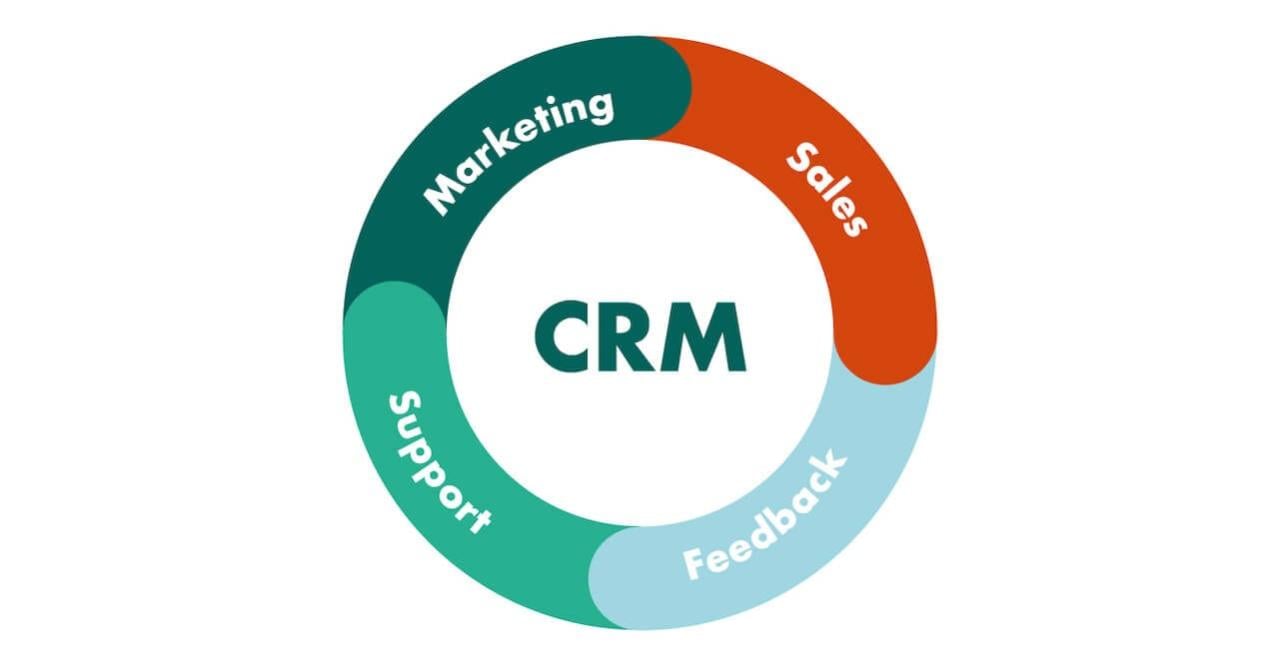The importance of customer relationship management lies in its ability to drive business success through effective customer interactions and loyalty. Exploring the significance of CRM opens doors to a world where customer relationships are the cornerstone of sustainable growth and profitability.
Customer Relationship Management (CRM) is a strategy used by businesses to manage interactions with current and potential customers. It involves the use of technology to organize, automate, and synchronize sales, marketing, customer service, and technical support. By implementing CRM systems, companies can effectively track customer interactions, improve customer satisfaction, and ultimately increase profitability.
Benefits of CRM for Businesses
- Improved Customer Retention: CRM helps businesses build stronger relationships with customers, leading to increased loyalty and repeat business.
- Enhanced Customer Satisfaction: By understanding customer needs and preferences, companies can tailor their products and services to meet customer expectations.
- Increased Efficiency: CRM systems streamline processes, automate tasks, and provide valuable insights that enable businesses to operate more efficiently.
- Better Targeting and Personalization: With CRM data, businesses can segment customers based on demographics, behavior, or preferences, allowing for targeted marketing campaigns and personalized communication.
- Revenue Growth: By leveraging CRM data to identify opportunities for upselling, cross-selling, and customer referrals, businesses can drive revenue growth.
Importance of Maintaining Customer Relationships
Maintaining customer relationships is crucial for long-term success as it helps businesses foster customer loyalty, reduce customer churn, and drive sustainable growth. By consistently engaging with customers, addressing their needs, and providing exceptional service, businesses can differentiate themselves from competitors and build a loyal customer base. This not only leads to repeat business but also encourages positive word-of-mouth referrals, ultimately contributing to the overall success and profitability of the company.
Strategies for Implementing CRM

Implementing Customer Relationship Management (CRM) in a business requires careful planning and execution. There are several strategies that can be employed to ensure the successful implementation of CRM practices. Utilizing technology, data analytics, and customer-centric approaches are crucial components in establishing effective CRM strategies.
Utilizing Technology to Enhance CRM Practices
Technology plays a vital role in enhancing CRM practices by providing tools and platforms to streamline customer interactions and data management. Some strategies for utilizing technology in CRM implementation include:
- Adopting CRM software to centralize customer data and track interactions across various touchpoints.
- Implementing automation tools for personalized communication and efficient workflow processes.
- Leveraging social media platforms and analytics tools to gather customer insights and engage with customers in real-time.
The Role of Data Analytics in Effective CRM Strategies
Data analytics is instrumental in developing effective CRM strategies by enabling businesses to analyze customer behavior, preferences, and trends. Some key aspects of utilizing data analytics in CRM include:
- Segmenting customers based on their purchasing behavior and preferences to tailor marketing campaigns and offers.
- Utilizing predictive analytics to forecast customer needs and personalize interactions for improved customer satisfaction.
- Leveraging data visualization tools to gain actionable insights and make informed decisions to enhance the overall customer experience.
Building Customer Loyalty through CRM
Customer Relationship Management (CRM) plays a crucial role in building and maintaining customer loyalty. By utilizing CRM strategies effectively, businesses can create personalized interactions with customers, leading to increased trust and loyalty over time.
Successful Customer Loyalty Programs Driven by CRM
Implementing CRM tools and techniques can help businesses create successful customer loyalty programs. Some examples include:
- Points-Based Loyalty Programs: Offering rewards points for every purchase, which can be redeemed for discounts or free products/services.
- Personalized Recommendations: Using CRM data to provide customers with personalized product recommendations based on their preferences and purchase history.
- Exclusive Offers: Sending special promotions or discounts to loyal customers through targeted email campaigns based on CRM data.
Impact of Personalized Customer Interactions on Loyalty
Personalized customer interactions, made possible through CRM, have a significant impact on customer loyalty. When businesses tailor their communication and offerings to individual customers, it creates a sense of value and importance for the customer. This leads to increased trust, satisfaction, and ultimately, loyalty towards the brand.
CRM Best Practices
Customer Relationship Management (CRM) best practices are essential for businesses looking to effectively implement CRM systems. These practices help organizations maximize the benefits of CRM by ensuring that customer interactions are managed efficiently and effectively.
Identify key best practices for effective CRM implementation
- Define clear objectives: Clearly Artikel your goals and objectives for implementing CRM to ensure alignment with the organization’s overall strategy.
- Choose the right CRM system: Select a CRM system that meets your specific business needs and can be easily integrated with existing systems.
- Involve stakeholders: Engage key stakeholders, including employees from different departments, to ensure buy-in and collaboration throughout the implementation process.
- Focus on data quality: Maintain accurate and up-to-date customer data to enhance the effectiveness of your CRM system.
- Provide ongoing training and support: Continuously train employees on how to use the CRM system effectively to maximize its benefits.
Discuss the importance of training employees on CRM systems
Training employees on CRM systems is crucial for the successful implementation and utilization of CRM within an organization. Proper training ensures that employees understand how to use the CRM system effectively, resulting in improved customer interactions and enhanced productivity. By investing in employee training, businesses can maximize the value derived from their CRM system and improve overall customer satisfaction.
Explain how to measure the success of CRM initiatives
- Customer retention rate: Monitor the percentage of customers who continue to do business with your organization over time, which can indicate the success of your CRM initiatives in building customer loyalty.
- Customer satisfaction surveys: Conduct regular surveys to gather feedback from customers about their experience with your company, which can help measure the impact of CRM on customer satisfaction levels.
- Revenue growth: Track the increase in revenue generated from existing customers as a result of CRM initiatives, which can demonstrate the effectiveness of your CRM strategy in driving sales and profitability.
- Customer lifetime value: Calculate the lifetime value of your customers to determine the impact of CRM on customer profitability and retention, providing valuable insights into the success of your CRM initiatives.
In the world of programming, the phrase “Hello world!” holds a special significance as the first program often written by beginners. This tradition dates back to the early days of computing and serves as a simple introduction to a new language.












